Wednesday, November 17th, 13h45-15h00
Communicating the science of Artificial Intelligence is challenging. Agreement on a definition of AI has remained elusive, and developments have seen successive false dawns and subsequent AI winters. The science fiction that continuously runs ahead of AI inescapably frames expectations, so that AI’s capacity to overexcite as well as to terrify impedes sober communication. Reflexivity is essential. First, AI itself is increasingly shaping the message and the audience in all forms of communication. Second, scientists routinely recruit AI collaborators to speed up data gathering and analysis. Today, artificial decision-making systems surround us – some embodied as robots, others imperceptible in digital worlds. Our roundtable presents five different ways of thinking about AI: how the technology is imagined; how we can engage with AI agents as legal entities; how we experience physical robots amongst us; our interactions with AI bots and finally how the media represents AI. The co-existence of these different facets of AI, some hidden and some forcibly present, confronts us with the challenge of how to discuss the science of AI when the term elicits such diverse expectations as to what the key issues are. We all know how it feels when “the computer says ‘No’”. Attempts to make the world more readily interpretable by AI raise difficult questions over where power resides – in the ‘real’ or ‘digital’ worlds, and how these twins are related to each other. And all this without discussing super-intelligent AI, the singularity, or the ethics of autonomous weapons systems. Challenges indeed for science communicators.
|
|
Dr Chris Tennant is based at UCL’s Science and Technology Studies department researching the introduction of new technologies to society on the ESRC funded Driverless Futures? project. He worked for 25 years in the financial services industry in London before studying for a doctorate at the LSE. He continues to be a Visiting Fellow at LSE’s Department of Psychological and Behavioural Science. His research interests are the interplay between moral values and rational explanation, media representation of contested science, trust and accountability. | |
Mikihito Tanaka is Associate Professor of Science and Media Studies in the Journalism Course at the Graduate School of Political Science, Waseda University, Japan. He earned his Ph.D. in Life Scinece from the University of Tokyo, and has more than 10 years of experience as a journalist. Currently, he carries out research related to issues between science and society, mass/social media, and science journalism with using both qualitative (e.g. critical discourse analysis) and quantitative (e.g. content analysis, social network analysis, natural language processing) methods. He is a founding member and research manager of the Science Media Centre of Japan (SMCJ). In 2011, his work with the SMCJ team was highly acclaimed for their service to the public in providing evidence-based scientific information during the triple disasters —earthquake, tsunami and Fukushima Daiichi nuclear accident — and received an award from the National Institute of Science and Technology Policy.His recent publication is “Traces of Fukushima: Global Events, Networked Media and Circulating Emotions” (Palgrave, 2019). | |
Philippe Fauquet-Alekhine is Scientific Director at INTRA robotics, in charge of international projects addressing training and performance of pilots in operational situations, former Chargé de Mission for innovative development in operational professionalization and Human Factors Consultant at Chinon Nuclear Power Plant (Electricité de France). He is member of the Laboratory for Research in Sciences of Energy (France & Germany, Web Site : www.hayka-kultura.org) and of the SEBE-Lab at the London School of Economics & Political Science (UK, Web Site : www.SEBE-Lab.net). Doctor in Physics Science (University Pierre & Marie Curie, Paris, France), Work Psychologist (MSc from the Conservatoire des Arts & Métiers, Paris, France), doctor in Behavioural Psychology (PhD, London School of Economics & Political Science, UK), Philippe Fauquet-Alekhine is author of tens of scientific articles and books addressing physics, psychology, sociopsychology, psycholinguistics and cognition. He has more than 20-year experience in work activity analysis and research applied to human performance within high-risk industries, with a special focus on the effect of simulation training and stress on performance. He investigates aerospace, aeronautics (civil and military), navy, nuclear industry, robotics in hostile environment, and medicine. He received several awards mainly related to his work addressing stress at work. Philippe Fauquet-Alekhine’s last book is: Knowledge Management in High-Risk Industries - Coping with Skills Drain (2020) Palgrave Macmillan, London, UK. Scientific communication on artificial intelligence: the question of the social status of the biodroid The purpose of “communication” is to get a message or information from a sender to a receiver according to different modes of expression (oral, written, visual,… explicit or implicit). For humans, this expression is generally that of a thought, which is a construction resulting from intellectual representations generated by the combination of imaginary or real sensory perceptions, and mental representations (Meyer, 2001), which we will call for simplicity, source elements. Depending on the characteristics of these source elements and the associated emotions for the person, some thoughts are expressed more than others or expressed before others. In other words, some of the thoughts are prioritized or ranked over others, in particular depending on the person's needs and concerns. The information that the communication thus carries depends on these priorities. Scientific communication, as the overall expression of a scientific community and therefore of a set of people, follows this process: the more people perceive a subject as a priority, the more the expression of this subject is salient in scientific communication. For example, the explosion in the number of scientific articles addressing covid19 in 2020 illustrates this prioritization process at the level of the scientific community (from a few hundred to more than 200,000 in 1 year; Else, 2020). A search on GoogleScholar with the keywords “artificial intelligence” and “ethics” indicates an increase of more than 65% of publications between 2010 and 2019 to reach more than 60,000 articles, which places the subject “artificial intelligence” and “ethics” among those most discussed by the scientific community in the field of artificial intelligence such as “Machine Learning and Probabilistic Reasoning”, “Neutral Networks”, or “Computer Vision” (Elzevier, 2019). The question of ethics in the field of artificial intelligence is therefore a concern for the people constituting the scientific community. However, reading reports dealing with this issue at the level of the European Commission suggests that the scientific community is more concerned with the impact of artificial intelligence on humans than the reverse. The impact of artificial intelligence on humans concerns human rights and their well-being; the reverse would concern the impact of humans on entities endowed with artificial intelligence such as a so-called "biodroid" entity, being or object combining mechatronic and biotechnological components participating in its operation, endowed with artificial intelligence allowing it autonomous thinking and self-awareness. It would then be a matter of considering the rights of the Robot and its well-being. For 2019, a search on GoogleScholar with the keywords "artificial intelligence", "ethics" and "human rights" indicates a proportion of 12% of the above 60,000 articles, against 0.4% by replacing "human rights" by "robot rights". However, many scientists, especially in the disciplines of Human Sciences, wonder about the social status of a biodroid. As Scientific Director in an operational intervention robotics laboratory, I can testify today that in the industrial community, even in the purely technical-oriented robotics engineering community, this type of concern is far behind other technical topics (such as the loss of transmission of the command of a robot, the reduction of the weight of the batteries of robots or drones in order to increase the flight elongation or the carrying capacity). It is even probable that for a large part of this community, the ethical question of the social status of the biodroid is not even thought. The problem is that, on the one hand, the communities which are concerned with the ethics of the status of the biodroid are not the designers / developers of the biodroid, and on the other hand, the communities likely to develop such biodroids seem far from the former communities. The risk is therefore that the former develops a deontology that is disconnected, or even incompatible with what the latter have developed. It therefore seems important to socialize the question of the social status of the biodroid endowed with artificial intelligence and autonomous thinking via interdisciplinary scientific communication and public communication too. Else, H. (2020). How a torrent of COVID science changed research publishing-in seven charts. Nature, 553-553. Elzevier. (2019). How Knowledge is Created, Transferred, and Used: Trends in China, Europe, and the United States. Elsevier website: https://www.elsevier.com/research-intelligence/resource-library/ai-report Meyer, C. (2001). Les représentations mentales. Entre «res» et «flatus vocis». Communication. Information médias théories pratiques, 21(1), 9-31. | |
BIO TO COME | |
Marc Schoenauer is DR0 with INRIA, that he joined in 2001 after 20 years with CNRS, at CMAP of Ecole Polytechnique. He founded the TAO team at INRIA Saclay together with Michèle Sebag in 2003. He has been working at the border between Evolutionary Computation (EC) and Machine Learning (ML), author of more than 150 papers, (co-)advisor of 35 PhD students. He has been Chair of ACM-SIGEVO (2015-2019), was the founding president (1995-2002) of Evolution Artificielle, and president of AFIA (2002-2004). He has been Editor in Chief of Evolutionary Computation Journal (2002-2009), and is currently action editor of JMLR. He seconded Cédric Villani in writing the report on the French Strategy for AI, delivered to pdt Macron in March 2018. | |
Ahmet Suerdem, PhD, is a Professor in Business Administration Faculty at Istanbul Bilgi University. He is also a Senior Academic visitor at LSE Psychological and Behavioural Sciences department. He has received his doctorate from Paris 8 University on Educational Sciences-Institutional Analysis. He was a European Council Post-Doc fellow at Paris 5, Social Anthropology dept. and Visiting Research Fellow at the UCLA and UCI, Marketing departments. He was involved in several International and National projects as a Director and Researcher. His areas of expertise include science in society, science culture, public understanding of science, text mining, content analysis, social network analysis, multivariate statistical analysis, bridging qualitative and quantitative research methods; consumer culture, social aspects of system design. He is an expert in many statistical and qualitative data analysis software and coding and analytics tools such as R, Python and KNIME. | |
Thursday, November 18th, 13h45-15h00 Although all actors agree that science journalism is in crisis, attempting to reach a consensus on the factors that led to such a situation – or that perpetuate it – and its consequences is proving to be far more difficult. Debates are lively between the journalists themselves, forced to juggle on a daily basis with the contradictions inherent in such a situation, since they are the first to confront it. But discussions are just as animated between researchers who study the evolution of the press and science magazines, since such observers often operate from different theoretical positions, and so are the conversations between researchers and journalists. This plenary brings together two journalists and two researchers so that they may exchange views, both on their respective positions and on their individual understanding of this crisis. Without presupposing the arguments they will be developing, we can nevertheless recall at random a few of the reasons frequently put forward by actors and researchers:
These few disparate elements of discourse, briefly summarised, demonstrate that the current crisis in science journalism is structural, and not merely a temporary convulsion.
|
|
Bernard Schiele, PhD, is a Professor of Communications in the Faculty of Communication at the University of Quebec at Montreal (Canada). He teaches and lectures frequently in North America, Europe and Asia, and has been working for a number of years on the socio-dissemination of S&T. He is a member of several national and international committees and is a regular consultant on scientific culture matters to government bodies and public organizations. At present he is the co-editor in chief with Ren Fujun (NAIS) of the new journal Cultures of Science. He is also a founding member and current member of the Scientific Committee of the PCST network. He chaired the International Scientific Advisory Committee for the New China Science and Technology Museum (2006–2009), and chaired the Scientific Committee of the Journées Hubert Curien 2012 (Nancy, France) (2011–2012). He also chaired the scientific committee of the Science and You Conference 2018 (Beijing, China). He was a member of the Expert Panel on the State of Canada’s Science Culture (2013–2014), which published Science culture: Where Canada stands (Council of Canadian Academies, 2014). Among other books he has recently published as a co-editor are At the human scale: International practices in science communication (Beijing University Press, 2006); Communicating science in social contexts: New models, new practices (Springer, 2008); Science communication in the world: Practices, theories and trends (Springer, 2012); Science communication today: International perspectives, issues and strategies (CNRS, 2013); and Les Musées et leurs publics: Savoirs et enjeux [Museums and their visitors: Knowledge and challenges] (PUQ, 2014); with Joëlle Le Marec and Patrick Baranger he has coedited Science Communication Today – 2015, and has coedited with Joëlle Le Marec a small booklet Cultures of Science (ACFAS, 2018) following a seminar on science communication held in Montreal in 2017, and recently coedited with Joëlle Le Marec and Jason Luckerhoff Musées, Mutations… [Museums, Mutations] (OCIM 2019). | |
Jean-François Cliche is a journalist for the daily Le Soleil, where he has been covering science since 2007. He also writes for columns in Québec Science magazine and on Canadian public radio. | |
Katharina Niemeyer is a media theorist, professor at the School of Media and director of the Centre de recherche Cultures-Arts-Sociétés at the Université du Québec à Montréal. Trained in cultural sciences and media philosophy (Bauhaus-Universität Weimar, Germany) as well as in communication sciences (University of Lyon and University of Geneva), her research focuses on the relationships between media and (digital) technologies, memory, and history. She has published articles and books dealing with the mediatization of historical events such as the Fall of the Berlin Wall and 911 but also about empathy journalism. She recently co-edited the book Nostalgies contemporaines : médias, cultures et technologies, published in 2021 by Presses universitaires du Septentrion. https://kniemeyer.net/p> | |
Yves Sciama is a French freelance science journalist and writer, trained in biology and science journalism, covering life and environmental sciences. His work has appeared in "Science et Vie", "Le Monde", and other major French-language media, as well as in English in "Science". He has done some teaching, documentary writing, website designing, and has the author of several books. He has won a number of prizes and fellowships, including a Knight Science Journalism Fellowship at MIT in 2014. He is the current vice-president of AJSPI, the French association of science journalists, and he has been elected on the board of the European Federation for Science Journalism (EFSJ). | |
Luisa Massarani is a Brazilian science communicator, who carries out both practical and research activities in the field. She is the coordinator of the National Brazilian Institute of Public Communication of Science and Technology and of the master on Science Communication at House of Oswaldo Cruz/Fiocruz (Brazil). She is also the coordinator for Latin American of SciDev.Net (www.scidev.net). Recipient of the Mercosur Award for Science and Technology (2014), the Brazilian Award for Science Communication (2016) and the Literature Jabuti Award (2017). | |
Friday, November 19th, 11h15-12h30
Baudouin Jurdant was one of the first researchers to reverse the question of the direction of scientific popularisation and address it to researchers: what role does popularisation play in science itself, i.e. in the scientific world? However, we still think of it as a range of practices (popularisation, dissemination, scientific communication and mediation) based on a model for transmission of something (information, knowledge, perceptions, cultural productions, etc.) emanating from the “scientific community” and targeting a public seen as being external to it, with the idea that such transmission will have several types of positive effects, even though they may sometimes be contradictory: the quality of debate on political issues having major scientific aspects, for example, and adherence to science as a collective project. It is also assumed that it sustains a feeling of general social responsibility among researchers, who may nonetheless be equally taken with managerial forms of loyalty to the institution that organises scientific communication for strategic purposes. Hence, the work carried out in various parts of the world (in particular by Ren Fujun in China and Hak-Soo Kim in South Korea) addresses these diverse interests. In our roundtable, we shall be examining the limits of the “communities” (whether epistemic, political or cultural) to which researchers belong when they are involved in social communications on science: what do we want to do, who with and who for? These are the questions that inspired Bernard Schiele’s political contextualisation of communication on science. Science’s self-criticism as a cultural and political practice, embodied by -Marc Levy-Leblond, the ontological turning-point in the face of environmental and climatic disaster, recognition of the debt as regards the many forms of knowledge that science has made invisible, the attention to vulnerabilities and dependences asserted by Mélodie Faure, and the attention to experience developed by Lionel Maillot are all involved in an assumed recognition of openings going beyond routine optimistic communicational models blind to the contradictions they create. The young researchers and professional mediators who are experiencing increasingly precarious conditions in most of the world’s countries explicitly assume a connection between research practice and multiple vulnerabilities, and such experiences transform what they want to share with regard to the frontiers, centres and margins of places where knowledge is produced. These factors play a part in mediation practices. Through forms of involvement that have mobilised a great many researchers and stakeholders, communication situations have certainly helped emphasise what, in relationships to science, was specifically a part of what escapes dominant narratives of standards and mastery. Analysis of communication models, sharing of experiences lived in a variety of scientific communication contexts, dissociation of the question of knowledge from that of science: in our roundtable, we shall try to connect forms of critical thought involved in science.
|
|
Joëlle Le Marec is a professor at CELSA (Ecole des Hautes Etudes en Sciences de l’Information et de la Communication), Sorbonne Université, she heads the GRIPIC research unit (EA 1498). His research focuses on the relationship between science and society, the condition of the public, and the cultures of the surveys. She also collaborates in numerous cooperation networks between research, associations and institutions, in particular for cooperation between libraries, museums and research.research, associations and institutions, in particular for cooperation between libraries, museums and research. She also runs an international network on knowledge of precariousness. Previously, she was a professor at the Université Denis Diderot and a professor at the Ecole Normale Supérieure de Lyon, where she created and led the "SciComm and society" team. She was the Chair of the Scientific Committee of Science & You 2015. Some publications: Joëlle Le Marec, Hester Du Plessis, Savoirs de la précarité - Knowledge from precarity, Editions des Archives Contemporaines, 2020. Joëlle Le Marec, Ewa Maczek (dir.), Musées et recherche - le souci du public, OCIM université de Bourgogne, coll. « Les dossiers de l'OCIM », 2020. Joëlle Le Marec, François Ribac (dirs.) Dossier thématique : ‘Savoirs de la musique, études des sciences, résonances’ Revue d'Anthropologie des Connaissances (Vol. 13, N°3), 2019. Joëlle Le Marec, (dir.) « Le style de la science » Revue de la BNF n°58, 2019. Ouvrage collectif : Le métier à penser - Tisser des textes avec Baudouin Jurdant, Mélodie Faury et Joëlle Le Marec (dirs.), Éditions des archives contemporaines, Paris, 2020. | |
With a phD in science studies, Mélodie Faury teaches as a PRAG (associate professor of universities) about science and technology studies (STS) and about open science. She works on communication practices in research practices, popularization of science, situated knowledge, storytelling and epistemological experiments. Project manager for the "Culture, Science-Society and Solidarity Actions" vice-presidency, she develops citizen science and participatory research at the University of Strasbourg. What voices for the sciences? What is present, conveyed and omitted in science communication How does the mediation mechanism define what can and cannot be said? What do science communication stakeholders say when they speak? Can they speak from their own point of view (Gilligan, 1982), and if not, whose voices are they embodying? Can they, for example, position themselves on the basis of their experience of research or contact with research? Or, on the contrary, do they step aside to speak “in the name of science”? What sciences does mediation talk about and what aspects does it omit? Under what conditions can science communication be a source of reflexivity? Science-society mediation efforts contribute in particular to the circulation of knowledge, the construction of a certain image of science and the opening up of spaces for speaking and discussion between research actors and civil society. These forms of oral or written communication make it possible to establish a diversity of relationships with the audiences they address, and can open up the space for reflection, potentially allowing science communication actors to impose their presence in the mediation context to explicitly activate their relationship with science and to bringing their attachments to practices into the relationship with the audiences. Although science communication actors are used to and trained to take audiences into account, in a communication context, they often forget that they themselves are a non-neutral actor in the context, with a direct effect on the context owing to their involvement, by means of their way of being. As such, the interests, concerns, ideologies and alliances of the speaker are rarely questioned, even though they form the basis of the discourse and, to an even greater extent, the mediator's relationship with their audience. Georgio Agamben (2014) gives a definition of the mechanism (see also Foucault’s works, 1971; 1975) that allows us to closely examine what is at stake in scientific mediation: “anything that has, in one way or another, the capacity to capture, orient, determine, intercept, shape, control and ensure the movements, behaviours, opinions and discourses of living beings.” As such, a mediation mechanism does not allow one to behave freely, nor to say everything that could be said about science, and often restricts mediators to what is expected of their movements, their behaviours and their discourse, for the benefit of science and the institutions (laboratories, universities, etc.) they represent. The mechanism does not allow their own voice to be heard: it is simply not built for that. It is embedded in a fabric of implicit norms and values, both in the way science mediation is conceived and in science as it should be and as it should be represented. Mediators and researchers construct their narrative and their discursive identity by adhering to these norms and values, or on the contrary in contrast thereto when the mediation mechanism is constructed to accommodate a critical discourse. The mechanism thus determines the way in which the actors who participate in it will consider what matters and how they will speak. Would understanding the mediation mechanisms in which we are caught up enable us to activate other forms of communication, other relationships and other narratives on and with science? At this stage, I can rephrase my questions: how can one speak within this mechanism? On whose behalf do PhD students speak? What voices are put forward? How does the researcher approach the subject? What are they narrating? What sciences do they talk about? Which sciences are represented through such a mechanism? [[How to share the sciences]] Who speaks? What is the relationship? Thinking about mediation in terms of presence and relationship – going beyond the diffusionist model Speaking about science < [[Speaking about science – reading]] Baudouin Jurdant chooses to question popularisation as a way of speaking about science. Not by speaking “in the name of science”, but by reintegrating a viewpoint of its one’s own, a particular perspective, in order to repair the removal of the speaker and the deficit of reflexivity characteristic of scientific writing and of objective pretension. Is it a question of this primary orality, of speech without a speaker, or on the contrary, of a possible place of emergence or rebirth of the speaking subject, which initiates the reflexive, critical and political subject? | |
Hak-Soo Kim (PhD in Communication from U of Washington, Seattle, USA) is Distinguished Professor, College of Transdisciplinary Studies, DGIST in Daegu and Professor Emeritus of Communication, Sogang University in Seoul, South Korea. He is a Fellow, International Communication Association (ICA) and Korean Academy of Science & Technology (KAST). He was the Founder & first Chair of the Special Committee on SHARE (Science, Health, Agriculture, Risk & Environment) Communication, Association of Academies & Societies of Sciences in Asia (AASSA), the Asian wing of IAP (InterAcademy Partnership). He has been internationally a pioneer of theory-building on science communication and community problem solving. (His email addresses are: hskim@dgist.ac.kr; hskim@sogang.ac.kr.) “So what?”: The question through which science communication pays researchers back We, researchers, can’t help asking the question “so what?” about our research product. Otherwise, the peer researchers or the general public are likely to do so, when our research product is made public. The question leads us to think about how (much) the research could contribute to solving puzzles (i.e., what are “causes” after the fact?) or problems (i.e., what are needed “effects” before the fact?). The peer (scientific) researchers might focus mostly on the former, while the general (nonscientific) public is most likely to do on the latter, that is, problem solving. Thus, if we are to communicate research or science toward the public, we should be able to handle the question “so what?” in terms of problem solving, not just puzzle solving. Otherwise, public communication of science is not likely to attract the public’s relevance and attention (Kim, 2007). As things stand, we, researchers, are more likely to pay attention to a situational problem than to the behavioral problem. The latter pertains to the “How” problem to solve the situational problem. Without solving the behavioral problem (Carter, 2021: behavioral architecture), the situational problem may not get solved. Judging from current world problems, such is the case all too often. We tend to disregard the behavioral problem, often just adopting available means (e.g., habits, rituals, and norms, including communication practices), because we lack the principles of the behavioral process critical to developing new solutions relevant to the public. Solving the behavioral problem is to build procedural as well as tool technologies. It is the priority before we ever invent more tools to solve a public’s situational problem. It derives from choreographing about minding (e.g., designing) and moving (e.g., performing), the work sure to make research painful but stronger and, at last, joyful. Choreography involves researchers in principled construction with art, science, and the humanities, as exemplified by Pasteur (Kim, 2020). The behavioral problem is ever-present, because a tool technology also demands procedural technology for its use. We admire researchers and engineers who have developed an innovative solution for a particular situational problem. They are often said to be a natural-born talent or genius (e.g., Edison, Pasteur). However, as a matter of fact, they must have made many efforts (“tries”) to develop effective procedural technology that would result in producing the innovation. Unfortunately, we, researchers, are also more concerned with the tangible or observable product than with the prior, procedural technology, that is, of solving the behavioral problem. We, researchers, should appreciate the choreography of developing procedural technology. Otherwise, we can’t invent an innovative procedural technology as a pre-solution to the situational problem, so as to solve those problems that the general public would be most concerned with. Thus, the question of “so what?” pays researchers back by driving us into development of procedural technology for more effective problem solving and eventually producing a better solution of the situational problem. Carter, R. F. (2021). Behavioral foundations of effective problem solving. Accessed 29 August, Retrieved from http://bfeps.org Kim, H.-S. (2007). PEP/IS: A new model for communicative effectiveness of science. Science Communication, 28(3), 287-313. doi: 10.1177/1075547006298645 Kim, H.-S. (2020). Realizing interdisciplinarity among science, humanism, and art: A new paradigmatic explication of community problem solving. Asian Communication Research, 17(3), 20-54. doi: 10.20879/acr.2020.17.3.20 | |
Jean-Marc Lévy-Leblond, physicist, epistemologist and essayist. Emeritus professor at the University of Nice. Director of scientific collections at Le Seuil, and of the journal Alliage (culture, science, technique). Author of numerous research articles in theoretical physics and philosophy of science, as well as of several essays on the place and role of science in culture (and vice versa). Recently published La Science (n’)e(s)t pas l’art, Hermann (2010), Le grand écart (la science entre technique et culture), Manucius (2012), La Science expliquée à mes petits-enfants, Seuil (2016), Le Tube à essais (Effervesciences), Seuil (2020). (2020). Scientific communication: a Möbius strip? “Man can only enjoy what he knows when he can communicate it to someone. (...) We only seem to know something and to be certain of it when we have convinced all those through whom we can succeed in making ourselves heard of its truth.” Giacomo Casanova, L’Icosaméron (1788) “Scientific communication” is usually thought of as being unidirectional: from the holders of knowledge to those who do not possess it. But these two categories are not relevant: the former know little, and the latter know a lot. Society is not divided into the knowledgeable on the one hand and the ignorant on the other. For the idea of communication to make sense, it is essential that scientists not only talk to laypeople, but above all, listen to them. In order to fulfil its function, mediation must be reciprocal and operate on the basis of exchange, and even confrontation. Two questions seem to me to be inseparable: – Can one produce knowledge without sharing it? – Can one disseminate knowledge without producing it? i.e.: – Can one research without teaching, popularising, etc.? * – Can one popularise without at least having tried out research? In other words, the production and transmission of scientific knowledge should no longer be thought of as separate things, and not even as two sides of the same reality. Science itself, after all, has shown us the existence of one-sided figures: the Möbius strip, whose surface can be continually traced without having to go from one side to the other, offers a useful metaphor of what a well-understood science would be, where nothing separates the creation and dissemination of knowledge. * I would like to draw on my own personal experience here – many of my (successful) research projects have been born out of my (unsuccessful) pedagogical experiences. | |
Dr. Lionel Maillot is the Manager of the Experimentarium Network in France. This program offers communication training for PhD students and researchers and organizes more than 1000 meetings per year between the general public and researchers since 2001 (see http://www.experimentarium.fr). He is also the Scientific Manager of the French branch of the European Researchers Night since 2003 and holds an Adjunct Researcher position in Science Communication with the CIMEOS department at the “Université de Bourgogne”, France. His work focuses on scientific public engagement. Dr. Maillot is particularly interested in the processes (situations, factors, paths…) which lead researchers to meet and communicate with the general public. He also has devoted a significant part of his thesis (defended in 2018) to the effects of these communication practices on the researcher himself and analyzed situations that proved beneficial for the PhD students through a dynamic of reassurance, renewed motivation for their research, etc. | |
BIO TO COME | |

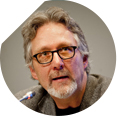 Martin W. Bauer, London School of Economics and Political Science (LSE), United Kingdom (Chair)
Martin W. Bauer, London School of Economics and Political Science (LSE), United Kingdom (Chair)  Daniel Boy, Sciences Po Paris, France
Daniel Boy, Sciences Po Paris, France Michel Dubois, Gemass, unité CNRS/ Sorbonne Université, France
Michel Dubois, Gemass, unité CNRS/ Sorbonne Université, France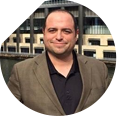 Gordon Gauchat, University of Wisconsin-Milwaukee, USA
Gordon Gauchat, University of Wisconsin-Milwaukee, USA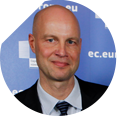 Michael Arentoft, Commission Européenne, Belgique
Michael Arentoft, Commission Européenne, Belgique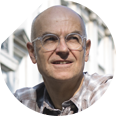 Chris J.Tennant, University college London, United Kingdom (Chair)
Chris J.Tennant, University college London, United Kingdom (Chair) Mikihito Tanaka, Faculty of Political Science and Economics, Japan
Mikihito Tanaka, Faculty of Political Science and Economics, Japan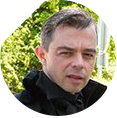 Philippe Fauquet-Alekhine, INTRA robotics, Avoine, France /
Philippe Fauquet-Alekhine, INTRA robotics, Avoine, France /  Alain Pottage, Sciences Po Paris, France
Alain Pottage, Sciences Po Paris, France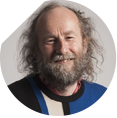 Marc Schoenauer, INRIA, France
Marc Schoenauer, INRIA, France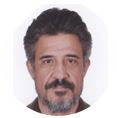 Ahmet Suerdem, University Bilgi Istanbul, Turkey
Ahmet Suerdem, University Bilgi Istanbul, Turkey Bernard Schiele, Université du Québec à Montréal, Canada (chair)
Bernard Schiele, Université du Québec à Montréal, Canada (chair)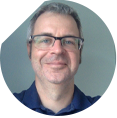 Jean-François Cliche, Journal le Soleil, Québec, Canada
Jean-François Cliche, Journal le Soleil, Québec, Canada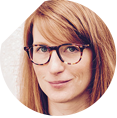 Katharina Niemeyer, Université du Québec, Canada
Katharina Niemeyer, Université du Québec, Canada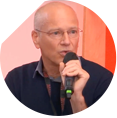 Yves Sciama, AJSPI, France
Yves Sciama, AJSPI, France Luisa Massarani, House&Fondation Oswaldo Cruz, Brazil
Luisa Massarani, House&Fondation Oswaldo Cruz, Brazil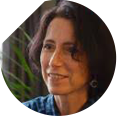 Joëlle Le Marec, Sorbonne Université, France (chair)
Joëlle Le Marec, Sorbonne Université, France (chair) Mélodie Faury, Université de Strasbourg, France
Mélodie Faury, Université de Strasbourg, France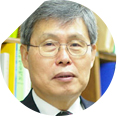 Hak-Soo Kim, The Korean Academy of Science and Technology, Korean
Hak-Soo Kim, The Korean Academy of Science and Technology, Korean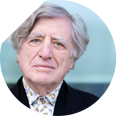 Jean-Marc Lévy-Leblond, Université Côte d'Azur, France
Jean-Marc Lévy-Leblond, Université Côte d'Azur, France Lionel Maillot, Laboratoire CIMEOS Dijon, France
Lionel Maillot, Laboratoire CIMEOS Dijon, France